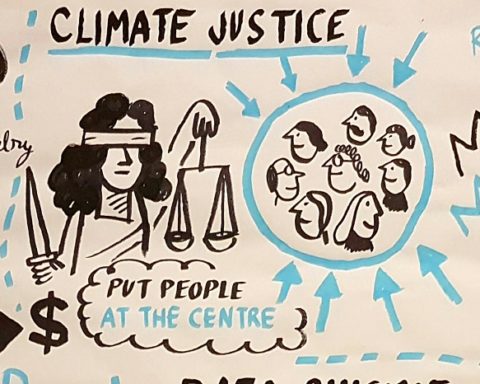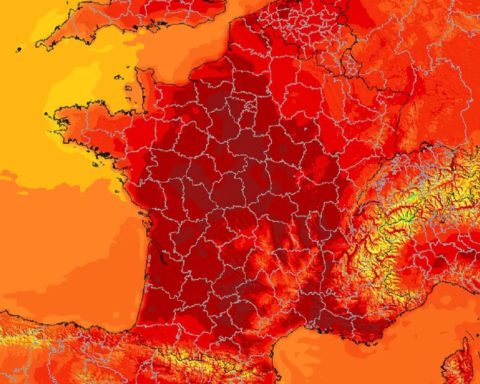Among the ten priorities of the new European Commission is the desire to give a new impetus to European energy and climate policy: in accordance with the wishes of its President, Jean-Claude Juncker, this must lead to a "more energy-resilient Union with a visionary climate change policy". France Stratégie has sought the expertise of three European economists, including Dieter Helm, professor of energy policy at Oxford University, who is publishing a report/working paper so that the European Commission can properly define its objectives. To force political leaders to make choices and change the situation.
While the European Commission must logically follow new guidelines and in particular the recovery plan announced by its President, it must also take account of the events it may face, in particular developments in international climate negotiations, possible variations in hydrocarbon prices and the development of non-conventional hydrocarbon production. Finally, it must fit into the geopolitical framework in which the European Union is developing, particularly with regard to Russia.
With this in mind, France Stratégie sought the expertise of three European economists: Marc Oliver Bettzüge, Professor of Economics, Director General of the Institute of Energy Economics at the University of Cologne; Dieter Helm, Professor of Energy Policy at Oxford University; and Fabien Roques, Associate Professor at the University of Paris-Dauphine and Vice-President at Compass Lexecon. A first report published in January 2014 diagnosed the crisis in which the European electricity system finds itself.
In 2014, European policy on energy and climate change has returned to the forefront. The annexation of the Crimea and the destabilisation of Eastern Ukraine have raised tensions with Russia to levels not seen since the Cold War. The European Union responded with an energy security plan and sanctions.
Events elsewhere have further complicated the situation. In the Middle East, the rapid progress of EIIL (the "Islamic State in Iraq and the Levant" now called the Islamic State), internal conflicts in Libya, the war in Gaza and the continuing negotiations with Iran on nuclear issues suggest that the optimism initially generated by the "Arab Spring" was misplaced to say the least, and chronic instability has returned.
In the United States, the energy revolution continues to transform the geopolitics of oil and gas, and the initial scepticism initially aroused by these changes and the announcement of possible North American energy independence is giving way to recognition of the permanence and scale of these changes, which concern international energy markets as much as Europe. The implications of the end of the commodity supercycle are both extremely profound for European energy policy and very poorly understood. Commodity prices have collapsed, especially oil prices, which have fallen below 80 $ per barrel[1].
As far as climate change is concerned, it is almost certain that there will be no follow-up to the Kyoto international framework after the Paris conference in December 2015. China's per capita emissions have now surpassed those of Europe and it is finally accepted that it is China, not the European Union, that is at the heart of the climate change problem. China has announced that it intends to cap its CO2 emissions only after 2030, when in any case they are likely to reach their highest level, with a much higher value after another 15 years of increases. The Paris conference will be based on a series of "pacts" and "commitments", very close to the model of the Copenhagen Accord, and not on the credible and legally binding binding measures that were envisaged by the Durban Conference of the Parties in 2011.
Global emissions are now rising to nearly 3 parts per million, the 440 ppm threshold has been exceeded, and in Europe, Germany is seeing its emissions rise as coal continues to dominate the power generation energy mix. The target of a maximum warming of 2 degrees seems out of reach.
Although many EU leaders are keen to argue that these external developments on security and climate change confirm the relevance of existing policies, in particular the internal energy market and climate change package, this position is increasingly difficult to defend. Change is needed.
This report/working paper presents a possible direction for European energy and climate policy. Section 2 discusses economic principles and in particular trends in raw material prices and technologies. In this context, section 3 examines the conceptual framework and how to design policy instruments to achieve the objectives. This section is based on an article entitled "The current situation and medium-term outlook for European electricity markets" published in October 2014 [2]. Sections 4, 5 and 6 deal respectively with each key element of the policy: security, climate and financial sustainability. Section 7 considers next steps and policy options for Europe.
1] At the time of writing this report
[2] Helm, D.R. (2013) The Current Situation and Medium-Term Outlook for European Electricity Markets, October.
(Source: France Stratégies 16 March 2015 © Dieter Helm)












